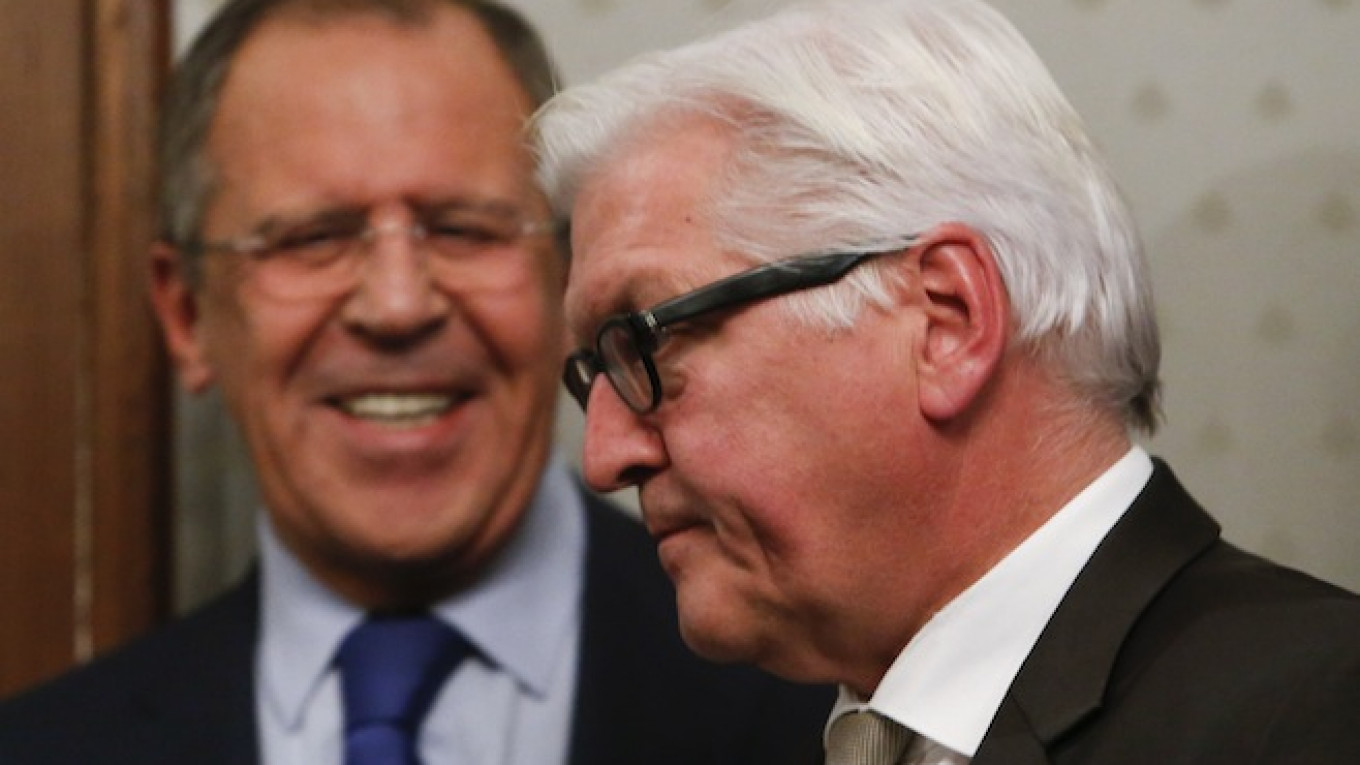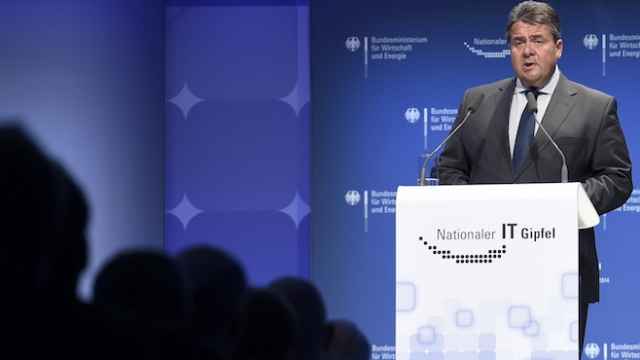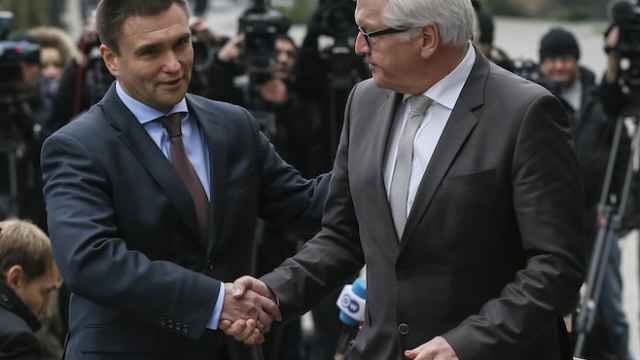MOSCOW/KIEV — Germany's foreign minister has said he sees "no reason for optimism" after talks in Moscow and Kiev on the Ukraine conflict that has claimed more than 4,000 lives and caused a deep rift between Russia and the West.
Violence is rising again despite more than two months of cease-fire. Kiev and the West say Russia is sending soldiers and weapons to help pro-Russian rebels, a charge the Kremlin denies.
"There is no reason for optimism in the current situation," Frank-Walter Steinmeier told a news conference with Russian Foreign Minister Sergei Lavrov after their talks in Moscow on Tuesday. "If I was pleased with the situation, I wouldn't be here."
The West has imposed sanctions on Russia, which is increasingly isolated over the conflict in Ukraine, where pro-Russian rebels are fighting Ukrainian troops to split parts of the eastern Donetsk and Luhansk regions from Kiev.
Lavrov sought to play up Russia's "partnership" dialogue with Berlin. Steinmeier was the first high-level German official to visit Moscow in months.
Both ministers stressed the need to implement the so-called Minsk agreements clinched between Moscow, Kiev and the rebels under the auspices of the Organization for Security and Cooperation in Europe (OSCE).
But differences between them were on display at the news conference, with both looking visibly uncomfortable at times.
Lavrov said dialogue between the rival sides should take into account the Nov.2 vote that separatists organized on the territory they control in defiance of Ukraine's parliamentary polls held days earlier and protestations from the West.
Russian President Vladimir Putin met Steinmeier later on Tuesday, the Kremlin said, without giving details of the previously unannounced talks.
Russia Defiant Over Pressure
The east Ukraine crisis has thrown Moscow's ties with the European Union and the U.S. into disarray.
Striking a defiant tone on Tuesday, Putin accused Washington of trying to subjugate Russia and warned that would never succeed.
Lavrov said Moscow would not "plead" with Western powers to lift the sanctions, which are straining its troubled economy.
World leaders piled pressure on Putin over Ukraine during a weekend G20 summit in Australia, where he and German Chancellor Angela Merkel held 3-1/2 hours of talks.
After the summit, Merkel accused Moscow of threatening the post-Cold War peace in Europe in some of her toughest remarks in recent months.
"After the horror of the two world wars and the end of the Cold War, this calls into question the peaceful order in Europe," she said, warning Moscow could seek to destabilize other countries like Moldova and Serbia.
Kiev said Tuesday that six Ukrainian soldiers had been killed in the past 24 hours, bringing to more than 140 the number of government troops killed since the Sept. 5 cease-fire.
Ukrainian Prime Minister Arseniy Yatsenyuk told Steinmeier during his Tuesday stop-over in Kiev that Russia and the rebels were violating the Minsk agreements.
"Russia should do what it signed up to and promised the whole world it would do," Yatsenyuk said.
A Message from The Moscow Times:
Dear readers,
We are facing unprecedented challenges. Russia's Prosecutor General's Office has designated The Moscow Times as an "undesirable" organization, criminalizing our work and putting our staff at risk of prosecution. This follows our earlier unjust labeling as a "foreign agent."
These actions are direct attempts to silence independent journalism in Russia. The authorities claim our work "discredits the decisions of the Russian leadership." We see things differently: we strive to provide accurate, unbiased reporting on Russia.
We, the journalists of The Moscow Times, refuse to be silenced. But to continue our work, we need your help.
Your support, no matter how small, makes a world of difference. If you can, please support us monthly starting from just $2. It's quick to set up, and every contribution makes a significant impact.
By supporting The Moscow Times, you're defending open, independent journalism in the face of repression. Thank you for standing with us.
Remind me later.






